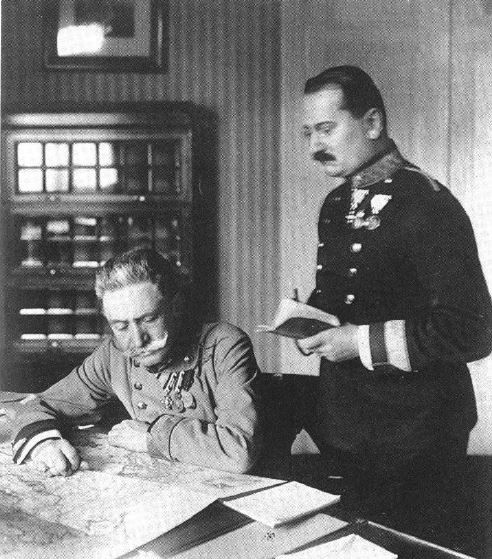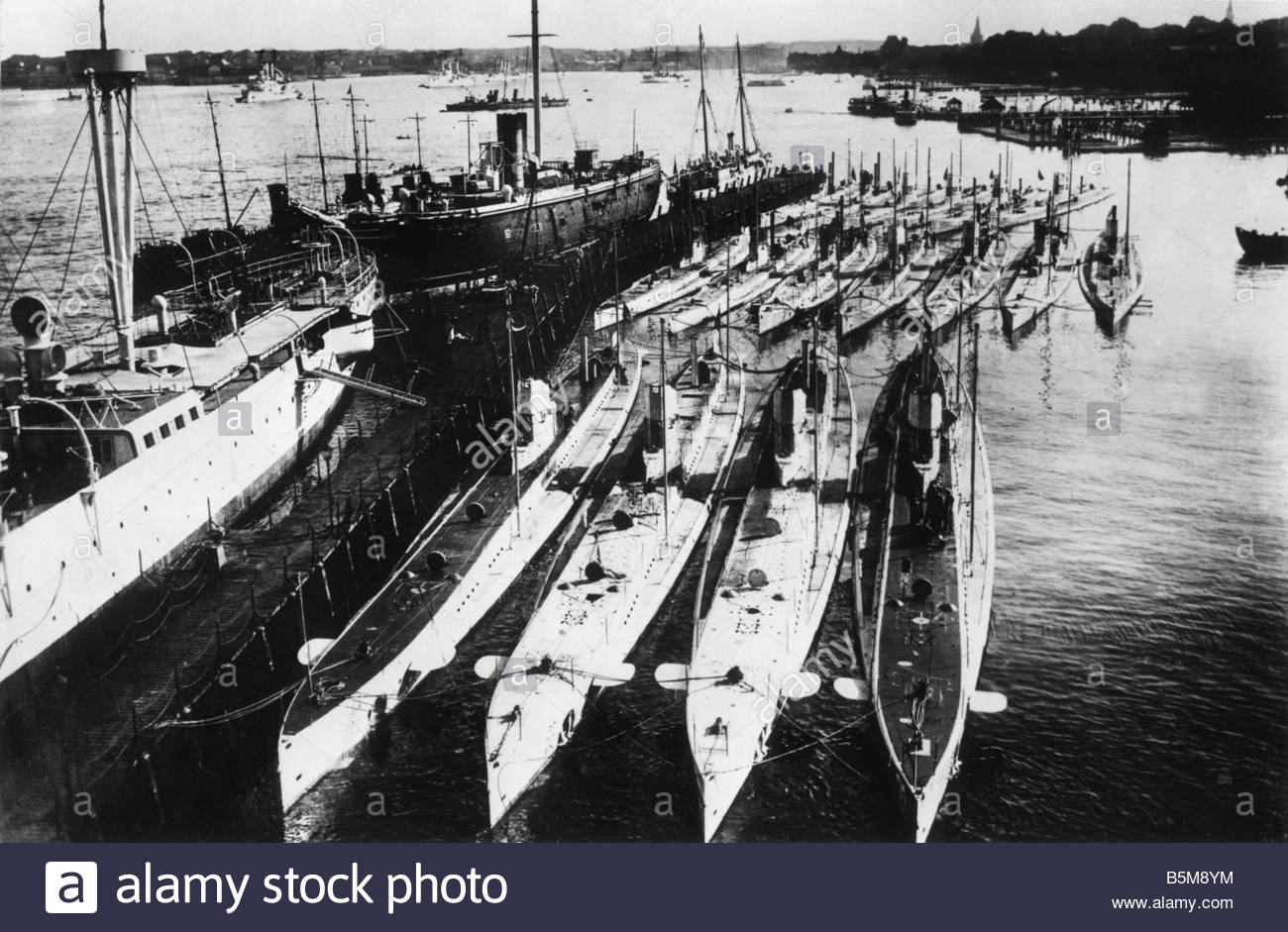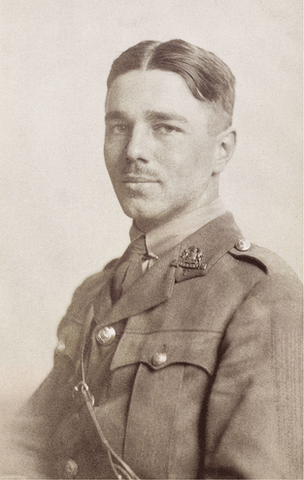Seeking A Knockout Blow Against Britain; Close Eye on America.
A Poet in No-Man’s-Land.
Special to The Great War Project.
(7-12 January) On these days a century ago, the Germans make a fateful decision. On January 9th the German Kaiser,” writes historian Martin Gilbert, “presided over a Crown Council at which the long-debated question of unrestricted submarine warfare was to be resolved.”
The first to speak is Germany’s chief of the naval staff, Baron Conrad Von Hotzendorf. He assures the Kaiser, reports Gilbert, that……
if Germany takes this step, “England would sue for peace in six months.”
The Kaiser has the United States in mind. He asks, what will be the effect of this step on the actions of the United States?
The response? “I will give your Majesty my word as an officer, that not one American will land on the Continent.”

Baron Conrad von Hotzendorf, seated, chief of German naval operations.
Another top general who favors unrestricted attacks on ships tells the Kaiser, our naval operations hav been effective. There’s been a sharp decrease “in supplies of munitions going to the Allies.”
The Kaiser is impressed.
One senior member of the German war council does oppose unrestricted submarine warfare. He is the German Chancellor, the highest civilian authority in Germany, and he opposes widening the war at sea.
As an opponent of this step, he tells the Kaiser, it risks bringing the United States into the war, especially if there is significant loss of life as a result of German submarine attacks on American ships.
But the hawks carry the day.
“The Kaiser hesitated no longer,” writes Gilbert. “Unrestricted German submarine warfare against all shipping, whatever flag it flew and whatever cargoes it carried, would begin with the utmost energy from February 1.”
It is one of the great gambles of the war, writes history Adam Hochschild.
The goal of this fateful step, explains the chief of German submarine operations, “is to force England to make peace, and thereby decide the whole war.”

German U-boats in harbor.
In Vienna, Germany’s Austrian allies are not convinced. So on January 12th a century ago, the leader of the Austrian Council of Ministers declares, according to Gilbert, “it was necessary to look for a compromise peace.”
“This was made all the more urgent as far as…maintaining the unity was concerned by an Allied declaration that day, issued in Rome, promising to strive for the national liberation of all the subject peoples of the Austrian dominions.
The subject peoples are plentiful: Poles, Czechs, Slovaks, Slovenes, Croats, Serbs, and Romanians.
Meanwhile on the devastated Western Front a poet begins to leave his mark on this tragic war.
On January 12th a century ago, a soldier named Wilfred Owen is sent into the front line on a four-day patrol.
At that point he writes to his mother: “I have suffered seventh hell….in the middle of no-man’s-land. The Germans knew we were there and decided we shouldn’t.”
“For fifty hours,” writes historian Martin Gilbert, “Owen’s dugout was under shellfire, sometimes intense, sometimes intermittent.”

Poet Wilfred Owen.
“I nearly broke down,” he writes.
After he is pulled back from the front, he writes his poem, “Sentry.”
…down the steep steps came thumping,
And splashing in the flood, deluging muck –
The sentry’s body; then, his rifle, handles
Of old Boche bombs, and mud in ruck on ruck,
We dredged him up, for killed, until he whined
“O sir, my eyes – I’m blind – I’m blind, I’m blind!”
Coaxing, I held a flame against his lids
And said if he could see the least blurred light
He was not blind; in time, he’d get all right.
“I can’t,” he sobbed. Eyeballs, huge-bulged like squids’
Watch my dreams still; but I forgot him there
In posting next for duty, and sending a scout
To beg a stretcher somewhere, and floundering about
To other posts under the shrieking air.

I think you may mean Admiral Henning von Holtzendorff (see:https://en.wikipedia.org/wiki/Henning_von_Holtzendorff) as Germany’s Chief of the Admiralty War Staff (CNO equivalent), and not Conrad von Hotzendorf (https://en.wikipedia.org/wiki/Franz_Conrad_von_H%C3%B6tzendorf), who was the leading Austro-Hungarian Field Marshal and Chief of the General Staff of the KuK Army.